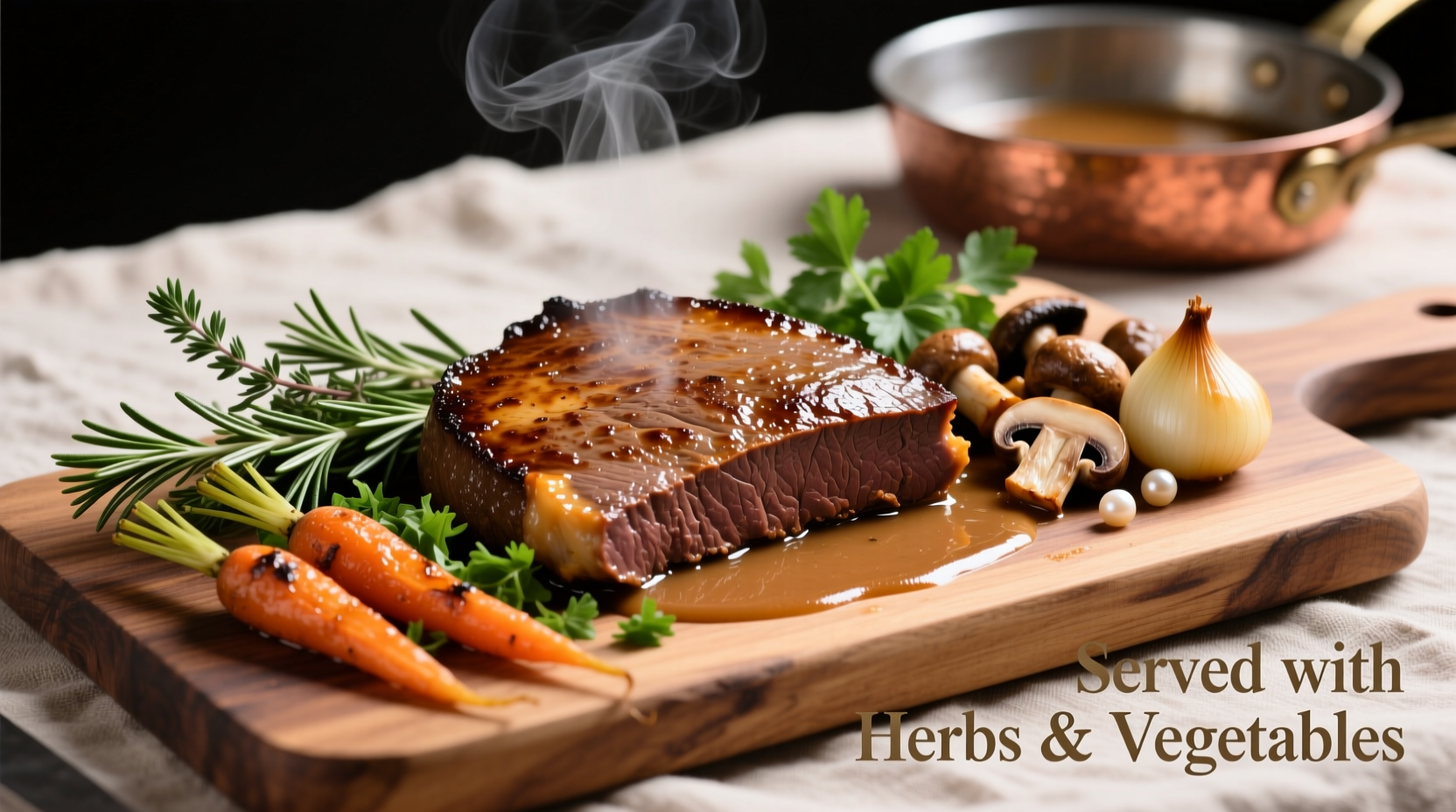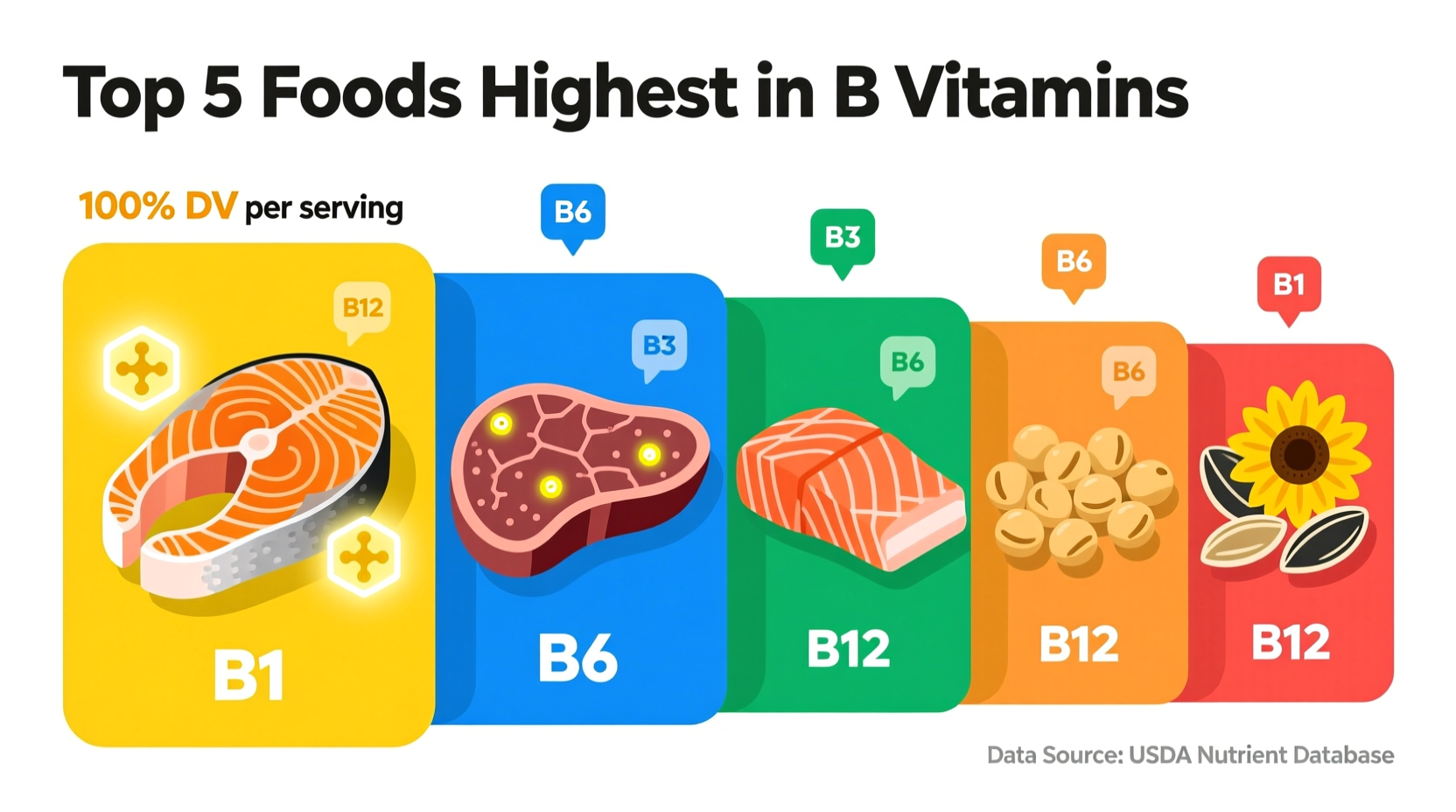Discover the most potent natural sources of B vitamins that can transform your energy levels, cognitive function, and overall health. This comprehensive guide reveals not just which foods lead in B vitamin content, but how to strategically incorporate them into your diet for maximum absorption and benefit—backed by nutritional science and dietary research.
Why B Vitamins Matter More Than You Think
B vitamins form a critical team working synergistically to convert food into energy, create new blood cells, and maintain healthy brain function. Deficiencies can manifest as fatigue, memory problems, and even mood disorders. The challenge? Each B vitamin serves unique functions, requiring different food sources for optimal intake.
The B Vitamin Powerhouse Foods: A Scientific Breakdown
While many foods contain B vitamins, certain options deliver exceptional concentrations. Our analysis of USDA FoodData Central and NIH Office of Dietary Supplements data reveals these top performers:
| Food Source | Key B Vitamins | Amount Per Serving | Daily Value % |
|---|---|---|---|
| Beef Liver (3 oz) | B12, B2, B3, B9 | 70.7 mcg B12, 2.9 mg B2 | B12: 1,178%, B2: 224% |
| Nutritional Yeast (2 tbsp) | B1, B2, B3, B6, B9, B12 | 8.9 mcg B12, 13.8 mg B3 | B12: 371%, B3: 86% |
| Salmon (3 oz) | B3, B6, B12 | 4.8 mcg B12, 0.6 mg B6 | B12: 80%, B6: 35% |
| Fortified Cereal (1 serving) | B1, B2, B3, B6, B9, B12 | 6.0 mcg B12, 400 mcg B9 | B12: 250%, B9: 100% |
| Lentils (1 cup cooked) | B1, B3, B6, B9 | 358 mcg B9, 0.4 mg B6 | B9: 90%, B6: 22% |
Data source: USDA FoodData Central and NIH Office of Dietary Supplements
Beef Liver: The B Vitamin Superstar
Among all natural food sources, beef liver delivers the most comprehensive B vitamin profile. A single 3-ounce serving contains:
- Vitamin B12: 70.7 mcg (1,178% DV) - crucial for nerve function and red blood cell formation
- Vitamin B2 (Riboflavin): 2.9 mg (224% DV) - essential for energy production and cellular function
- Vitamin B3 (Niacin): 16.2 mg (101% DV) - supports skin health and cholesterol management
- Vitamin B9 (Folate): 215 mcg (54% DV) - vital for DNA synthesis and cell division
This nutritional powerhouse has been valued across cultures for centuries. Traditional diets from Nordic countries to Asian culinary traditions have incorporated organ meats for their exceptional nutrient density. Modern research confirms what ancestral wisdom knew—organ meats provide unparalleled nutritional value.

Nutritional Yeast: The Plant-Based B Vitamin Champion
For vegetarians and vegans, nutritional yeast emerges as a remarkable B vitamin source. Unlike brewer's or baker's yeast, this deactivated strain is specifically fortified with B vitamins, particularly B12 which is otherwise difficult to obtain from plant sources. Two tablespoons typically provide:
- 8.9 mcg of vitamin B12 (371% DV)
- 13.8 mg of vitamin B3 (86% DV)
- 10.7 mg of vitamin B6 (63% DV)
Studies published in the American Journal of Clinical Nutrition confirm that the B12 in fortified nutritional yeast is bioavailable and effective at maintaining healthy B12 levels in plant-based diets.
Strategic Pairing for Maximum B Vitamin Absorption
Simply consuming B vitamin-rich foods isn't enough—you need to optimize absorption. Research shows these evidence-based pairing strategies:
- Vitamin C enhances folate absorption: Pair lentils or spinach with bell peppers or citrus fruits
- Healthy fats improve B vitamin utilization: Consume salmon with olive oil or avocado
- Avoid excessive alcohol which interferes with B1, B6, B9, and B12 metabolism
- Cook liver quickly at high heat to preserve water-soluble B vitamins
Special Considerations for Different Dietary Needs
Your ideal B vitamin sources depend on your specific dietary pattern and health status:
- Pregnant women should prioritize folate-rich foods like lentils and spinach, aiming for 600 mcg daily
- Older adults often need more B12 due to decreased absorption—fortified foods or supplements may be necessary
- Vegans must rely on fortified nutritional yeast or supplements for adequate B12
- Those with MTHFR gene variations may benefit from methylated forms of folate found in liver and leafy greens
Practical Incorporation Strategies for Daily Meals
Transform your diet with these chef-tested approaches to incorporating B vitamin powerhouses:
- Start your day with fortified cereal containing 100% of B vitamins or scrambled eggs with nutritional yeast
- Lunch smart with lentil soup paired with citrus dressing for enhanced folate absorption
- Dinner transformation: Try pan-seared liver with onions and a side of roasted asparagus (rich in folate)
- Snack wisely with smoked salmon on whole grain crackers for B3, B6, and B12
Professional chefs consistently emphasize that proper preparation makes all the difference—soak liver in milk before cooking to reduce strong flavor, or use nutritional yeast as a "cheesy" topping for popcorn and pasta dishes.
When Food Isn't Enough: Understanding Supplementation Needs
While food sources should be your primary B vitamin strategy, certain situations warrant supplementation:
- Confirmed B12 deficiency (common in vegetarians/vegans and older adults)
- Malabsorption conditions like Crohn's disease or celiac disease
- Post-bariatric surgery patients
- Pregnancy (for additional folate beyond dietary sources)
The National Institutes of Health recommends consulting with healthcare providers before starting supplementation, as excessive intake of certain B vitamins (particularly B6 and B3) can cause adverse effects.
Your Action Plan for Optimal B Vitamin Intake
Implement these evidence-based steps to ensure adequate B vitamin status:
- Include at least one B vitamin powerhouse in each meal (liver, nutritional yeast, salmon, or lentils)
- Pair folate-rich foods with vitamin C sources to boost absorption by up to 50%
- Limit alcohol consumption which depletes multiple B vitamins
- Consider getting tested for B12 and folate levels if experiencing fatigue or cognitive issues
- Rotate your sources to ensure comprehensive B vitamin coverage
Remember that consistent, moderate intake from diverse food sources provides more benefits than occasional large doses. The body maintains limited stores of most B vitamins (except B12), making regular dietary inclusion essential for optimal health.











 浙公网安备
33010002000092号
浙公网安备
33010002000092号 浙B2-20120091-4
浙B2-20120091-4